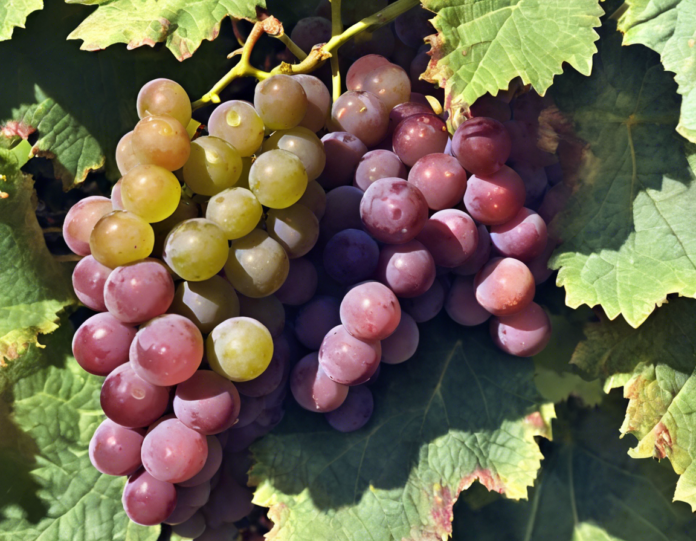Agriculture has been a cornerstone of human civilization for millennia, enabling societies to flourish and thrive through the cultivation of crops and breeding of livestock. Over the years, advancements in science and technology have revolutionized the way we approach agriculture, leading to increased yields, improved crop quality, and enhanced sustainability. One such innovation that has been making waves in the agricultural industry is the modification of grapes, a popular fruit with multiple uses across various cultures.
The Evolution of Grape Modification
Grapes have a long and storied history, dating back thousands of years to ancient civilizations such as the Egyptians, Greeks, and Romans. These fruits have been prized for their sweetness, flavor, and versatility, commonly used for making wine, juices, jams, and various culinary dishes. However, traditional grape cultivation has its limitations, including susceptibility to diseases, pests, and environmental stressors.
In response to these challenges, scientists have employed modern biotechnological tools to develop modified grape varieties that offer enhanced traits such as disease resistance, improved shelf life, and increased yield potential. By introducing specific genetic modifications, researchers have been able to create grapes that are better equipped to thrive in varying environmental conditions, ultimately increasing the resilience and productivity of grapevines.
Types of Modified Grapes
1. Disease-Resistant Grapes
One of the primary objectives of grape modification is to enhance disease resistance, as grapevines are susceptible to a range of pathogens such as powdery mildew, downy mildew, and grapevine trunk diseases. Through genetic engineering, scientists have been able to introduce resistance genes from other plant species into grapevines, bolstering their immune systems and reducing the need for chemical pesticides.
2. Seedless Grapes
Seedless grapes are a popular choice among consumers due to their convenient seedless nature and enhanced eating experience. Through traditional breeding techniques and genetic modification, researchers have developed various seedless grape varieties that retain the flavor and texture of traditional grapes while eliminating the pesky seeds.
3. Improved Flavor Profiles
Another area of focus in grape modification is enhancing the flavor profiles of grapes to cater to evolving consumer preferences. By targeting specific genes associated with flavor compounds, researchers have been able to create grapes with unique and appealing taste profiles, enticing even the most discerning palates.
4. Climate-Resilient Varieties
With the growing impact of climate change on agricultural landscapes, there is an increasing demand for grape varieties that can withstand extreme weather conditions such as drought, heat, and cold. Through genetic modification and breeding programs, scientists are developing grapes that are better adapted to changing climates, ensuring a stable supply of this beloved fruit.
Benefits of Modified Grapes
1. Increased Yield Potential
Modified grape varieties have the potential to produce higher yields per acre compared to traditional grape cultivars. By enhancing traits such as disease resistance and stress tolerance, farmers can maximize their harvests and improve overall productivity.
2. Reduced Environmental Impact
By developing grapes that require fewer pesticides and chemical inputs, modified varieties contribute to reducing the environmental impact of grape cultivation. This shift towards more sustainable farming practices benefits both the ecosystem and the health of agricultural workers.
3. Enhanced Nutritional Value
Some modified grape varieties have been engineered to contain higher levels of beneficial nutrients such as antioxidants, vitamins, and minerals. These nutrient-dense grapes offer consumers a healthier choice while maintaining the delicious taste and texture characteristic of traditional grapes.
4. Extended Shelf Life
Certain modified grape varieties exhibit improved shelf life characteristics, allowing for longer storage periods without compromising quality. This extended shelf life benefits both producers and consumers by reducing food waste and ensuring a consistent supply of grapes throughout the year.
Challenges and Controversies
While the prospect of modified grapes holds great promise for the future of agriculture, there are also challenges and controversies surrounding this technology. One of the primary concerns is the potential impact on biodiversity, as the widespread cultivation of modified grape varieties could lead to decreased genetic diversity within grape populations. Additionally, there are apprehensions about the long-term effects of consuming genetically modified foods, prompting calls for more stringent testing and regulation of modified grape varieties.
Future Outlook
Despite these challenges, the future of modified grapes in agriculture looks bright, with ongoing research and innovation paving the way for even more exciting developments. As scientists continue to refine the process of grape modification and address key concerns, we can expect to see a wider range of beneficial traits being introduced in grape varieties, further enhancing their value and sustainability.
Frequently Asked Questions (FAQs)
1. Are modified grapes safe for consumption?
- Yes, modified grapes that have undergone rigorous testing and approval processes are generally considered safe for consumption. Regulatory agencies such as the FDA assess the safety of genetically modified foods before they are introduced to the market.
2. Do modified grapes taste different from traditional grapes?
- In many cases, modified grapes are engineered to retain the familiar taste and texture of traditional grapes while offering additional benefits such as disease resistance or enhanced nutritional value. Consumers may not notice a significant difference in taste.
3. Can I grow modified grape varieties in my backyard?
- Some modified grape varieties are available for home cultivation, depending on local regulations and availability. Check with your local agricultural extension office or nurseries for information on obtaining modified grape vines for personal use.
4. How do modified grapes benefit the environment?
- Modified grapes that require fewer pesticide applications contribute to reducing chemical runoff into water sources and minimizing the ecological impact of grape cultivation. By promoting sustainable farming practices, modified grapes help preserve the environment for future generations.
5. Are modified grape varieties more expensive than traditional grapes?
- The cost of modified grape varieties may vary depending on factors such as research and development expenses, production costs, and market demand. While some modified grapes may be priced slightly higher initially, increased yields and reduced inputs could lead to long-term cost savings for producers.
In conclusion, the magic of modified grapes offers a glimpse into the future of agriculture, where innovation and technology converge to enhance the sustainability, productivity, and quality of our food supply. As researchers continue to unlock the potential of grape modification, we can look forward to a diverse array of grape varieties that cater to the evolving needs of consumers and growers alike, ushering in a new era of agricultural possibility.

